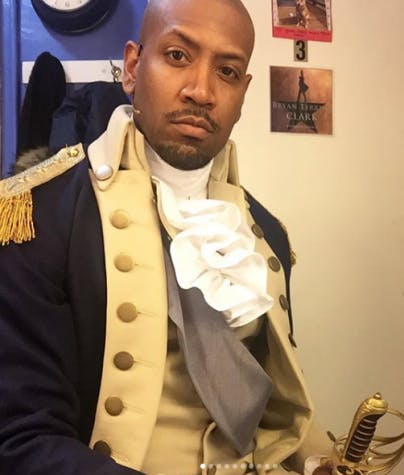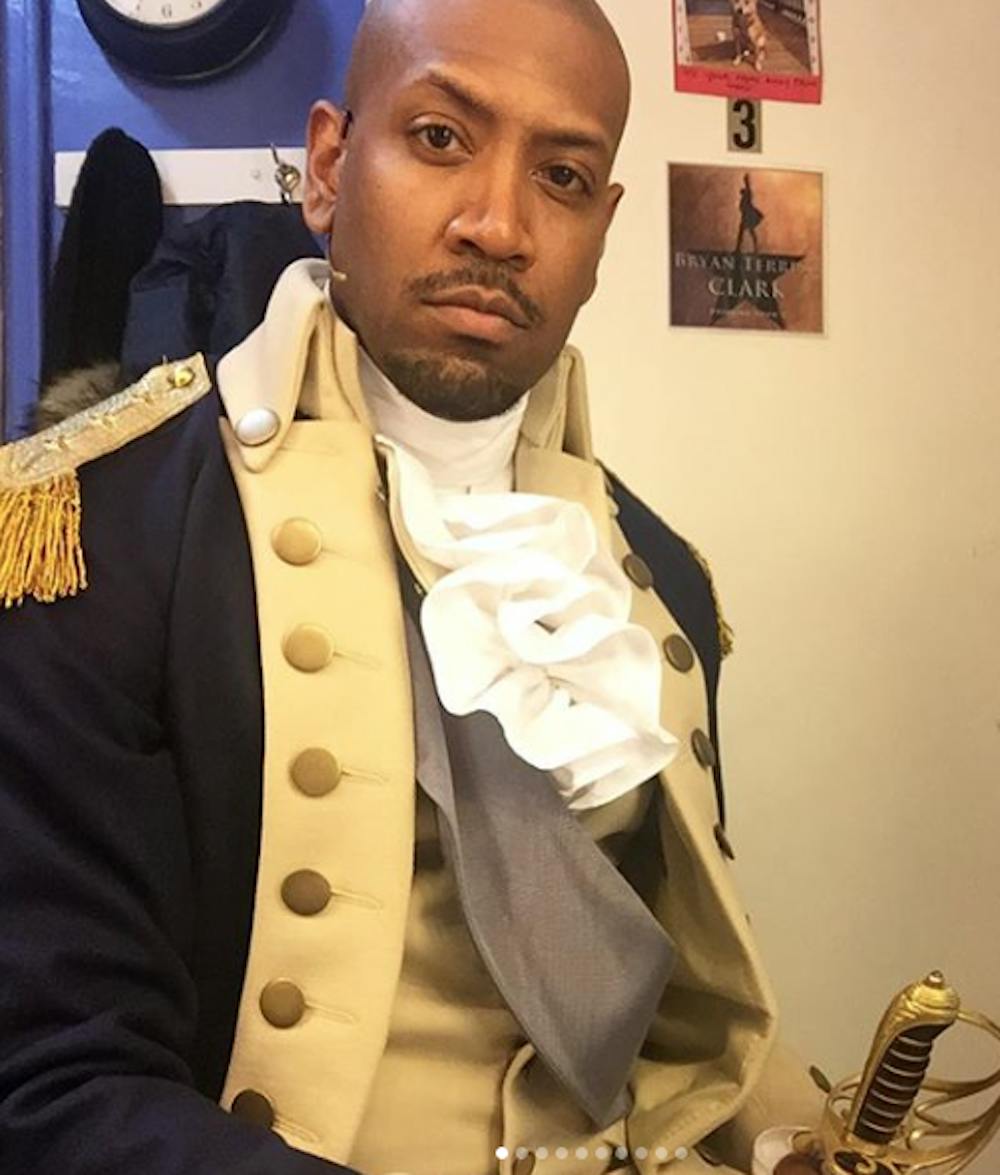Everyone has heard the phrase “do what makes you happy.” We see it in magazines, in stories our English teachers made us read and even in those Buzzfeed quizzes where we learned what we should do with our lives based off our cereal choices. But how many of us have actually managed to listen and implement this ideology in our lives? How many of us college students will go on to “do what makes us happy?” The truthful answer is too few.
Bryan Terrell Clark is proof that one can find a way to combine passion and purpose to live the equivalent of eternal summer: a life brimming with happy days. While he is most well known for his role as George Washington in the groundbreaking, Tony Award-winning Broadway musical “Hamilton,” he can also be seen in numerous television shows, such as “When They See Us.” On top of his hugely successful acting career, he co-founded an initiative titled inDEFINED, which works to inspire children to break free of the labels placed on them by society through exposure to the arts.
In front of an eager audience in Wilson Hall, Clark began speaking on the themes of reflection and motivation. He opened with two seemingly simple questions: “What is your passion?” and “When did you first engage with that passion?”
After a moment of contemplative quiet, everyone turned to someone near them to share their ideas. Clark pulled the scattered threads of conversations in the room back together with a reflection on his own role in “Hamilton,” which he referred to as “an honor and a privilege.” This eight-times-per-week “honor” was shared with the audience when he proceeded to perform George Washington’s entrance, no backdrops, no backup singers and no inhibitions. “Here comes the general” indeed.

Clark as George Washington in "Hamilton."
His clear passion for his everyday reality solidified in this impromptu performance, though the significance of playing George Washington lies in his love for the fact “that [George Washington] started off as a farmer and became a soldier, a general and a president, but in his heart, he always knew he was a farmer.” So we see it in Clark’s own life.
Growing up in Baltimore, Clark began discovering his love of the arts before he could talk — he would just “bounce in front of the TV.” His mother took note and knew it was “her job as guidance to foster and shape” that passion. He explained that his mother was “the angel” who taught him how to strive to be the best him he could be, while his father was “the dragon” who taught him that no matter how many times he messed up he could be resilient. “Both of them taught me how to fly,” Clark said.
This “flying” didn’t occur until he shook off his shy middle-school persona and became a theater major at a magnet school. There, acting gave him “access to other people,” and to his voice. He began studying theater on a full scholarship at the University of Maryland, but snuck to New York City to audition for shows. A figure in his life told him he shouldn’t audition for “big-name” schools like NYU and Yale, because they would “accept less of him” on the basis of his race. To get past this shocking remark, he realized he had to tap back into his inner voice even when other people try to silence it. After receiving acceptance letters to both schools, Clark embarked on a journey to Yale, where he found “the reason why we do what we do,” by engaging his passion for theater.
Bryan Terrell Clark dropped learned-wisdom like pennies, tokens to be picked up and tucked away in a pocket to be carried throughout one’s day-to-day life. Growing up, his grandmother always said to him, “you make sure you enjoy your life.” He believes that life comes with so much and we forget to enjoy it, often sacrificing ourselves for others to the point of no longer knowing ourselves. In his eyes, we “enjoy the journey” when we “find gratitude,” which is the “key to abundance.”We must also embrace change,” Clark said, as it is the “most consistent thing” in life. Only then can we begin to make “decisions based on the inner voice.”
So, how do we do what makes us happy? His advice: “let your passion be your GPS to bring you to the moments of purpose that fulfill your life.” Well, then, why are we wasting time recalculating when we can just press “GO?”
From Baltimore to Broadway: 'Hamilton' actor visits campus

COURTESY PHOTO
Comments



